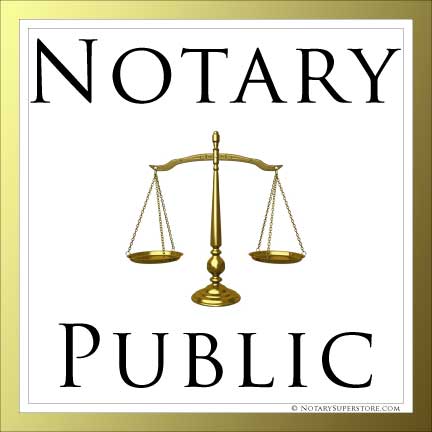Apostille Process Explained: Improving Worldwide File Verification
Apostille Process Explained: Improving Worldwide File Verification
Blog Article
Debunking Notarial Work: Streamlining the Duty and Significance of Notaries
In the complex web of lawful documentation and verification, notaries stand as columns of guarantee and credibility. Their role, often shrouded in secret for several, carries significant weight in making sure the legitimacy and integrity of important papers. As guardians of validity and fact, notaries play an essential part in our culture, yet their job is not always fully recognized. By unraveling the intricacies dropping and bordering notarial methods light on the importance of their acts, a clearer understanding emerges of the vital role notaries play in maintaining the material of contractual and lawful arrangements.
The History of Notarial Work
The background of notarial job dates back to ancient human beings, where scribes played an essential function in tape-recording crucial info and authenticating papers. This led to the growth of notaries, individuals designated by the state to act as neutral witnesses in legal matters.
During the Center Ages, notaries obtained prominence in Europe, with their functions broadening to consist of drafting legal papers, licensing signatures, and preserving records. The surge of international trade additionally stressed the significance of notarial job in validating contracts and contracts throughout boundaries.
In the contemporary age, notaries continue to play an essential role in legal and business transactions by confirming identities, verifying the credibility of records, and preventing scams. Their function in accrediting the credibility of contracts includes a layer of protection and depend the ever-evolving landscape of commerce and law.

Responsibilities and Obligations of Notaries
The historical evolution of notarial work from ancient worlds to the contemporary age has shaped the distinctive tasks and duties that notaries promote in lawful and service purchases today. Notaries play an essential duty in validating the credibility of records and the identification of notaries. Among their primary duties is to witness the signing of important files, such as acts, wills, and contracts, to make certain that all events are entering right into agreements knowingly and voluntarily. Notaries likewise validate that notaries are of sound mind and not under pressure or coercion.
They accredit copies of original documents, providing assurance to establishments that the duplicates are real reproductions of the originals. Generally, the obligations and duties of notaries are essential in protecting the integrity and legality of various documents and purchases - Notary.
Notarial Certificates and Signatures
Exemplifying meticulous attention to detail, news notarial certificates and trademarks act as crucial parts in verifying the credibility of lawful papers. Notarial certificates generally contain crucial details such as the date of notarization, the names of the signatures, a description of the document, and the notary's main seal. These certificates provide a clear document of the notarial act, guaranteeing that the document can be conveniently determined and traced back to the notary that looked after the process.
Trademarks play an essential role in notarial job, as they represent the arrangement and approval of the parties entailed. Notaries thoroughly witness the finalizing of files to validate the identity of the signatures and confirm that they are authorizing of their own cost-free will. By attaching their main seal and signature to the record, notaries license that the needed treatments have been adhered to and that the file is enforceable and valid.
In significance, notarial certifications and signatures are the characteristic of authenticity in legal deals, giving assurance to all parties included that the documents are genuine and binding.
Relevance of Notarial Acts

Notarization Refine Described
Clarifying the registration procedure gives quality on the necessary actions entailed in verifying legal files. The registration procedure typically begins with the specific offering the paper to a notary public. The notary after that confirms the signer's identification via acceptable recognition approaches. As soon as the identification is validated, the notary makes sure that the private signing the document does so voluntarily and without any kind of browbeating.

Final Thought

Notarial certificates generally consist of crucial info such as the date of registration, the names of the signatures, a summary of the document, and the notary's official seal. These certificates give a clear record of the notarial act, guaranteeing that the file can be conveniently recognized and traced back to the notary who oversaw the process.
By fastening their official seal and signature to the file, notaries accredit that the essential procedures have actually been adhered to and that the record is legitimate and enforceable.
By verifying the identification of the signatures, validating their readiness to enter right into the agreement, and licensing the date and place of the signing, notaries play a vital role in promoting the credibility of lawful records.After the file is authorized, the notary will attach their main seal or stamp onto the document.
Report this page